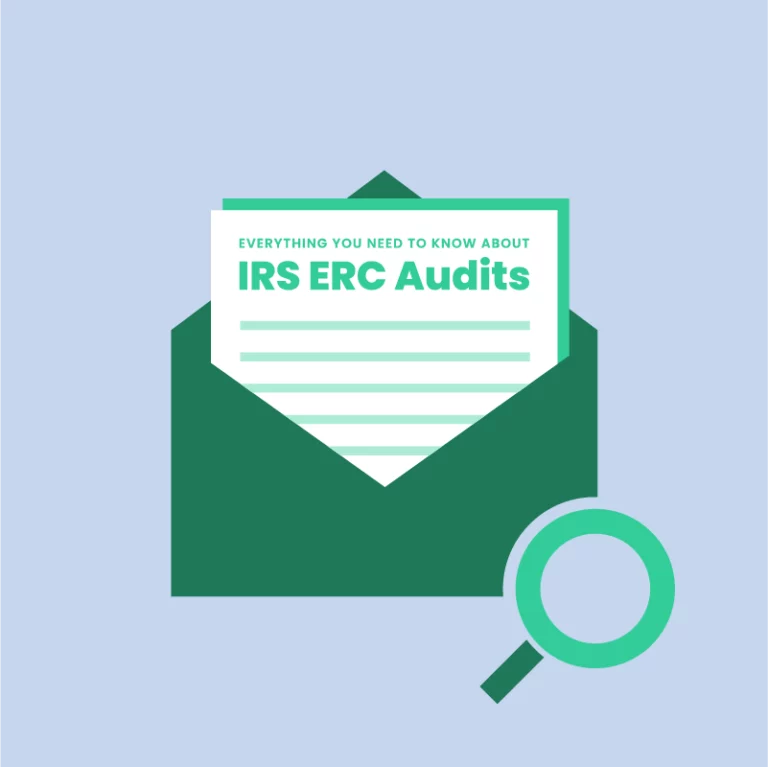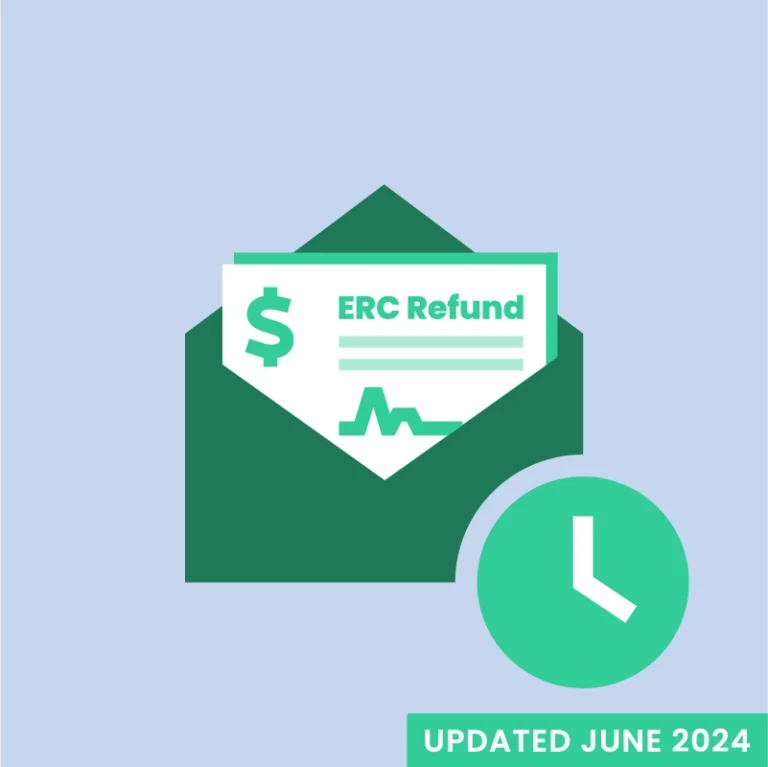If you have heard of the Employee Retention Credit (ERC) or Employee Retention Tax Credit (ERTC), you have likely been subjected to aggressive marketing by third-party processing companies via social media, search engines, emails, phone calls, text messages, or physical mail. While some of these processors are qualified to assist you, many are not. They have inundated the IRS with questionable ERC claims, exacerbated the agency’s ERC backlog, and even compelled IRS Commissioner Danny Werfel to issue a moratorium on the processing of new ERC claims through the end of the year.
The IRS has been candid about its intention to devote more resources to auditing employers’ ERC claims. This response goes without surprise when there is potential for a high level of abuse. That is why The 1st Capital Team has prepared this complete guide to understanding, preventing, and preparing for ERC audits.
IRS Warnings and ERC Audit Risk
Beginning on October 19, 2022, the Internal Revenue Service (IRS) issued its first warning regarding the ERC and third-party processors.
The Internal Revenue Service today warned employers to be wary of third parties who are advising them to claim the Employee Retention Credit (ERC) when they may not qualify. Some third parties are taking improper positions related to taxpayer eligibility for and computation of the credit.
IR-2022-183
The IRS has since cited the ERC in nine other warnings — see table below for details.
Coined “ERC mills,” these pop-up processors are putting honest businesses like yours at risk of being audited by the IRS and penalized if their ERC claims cannot be substantiated.
Notice | Date | Headline |
|---|---|---|
IR-2022-183 | October 19, 2022 | Employers Warned to Beware of Third Parties Promoting Improper Employee Retention Credit Claims |
COVID Tax Tip 2022-170 | November 7, 2022 | Employers: Beware of Third Parties Promoting Improper Employee Retention Credit Claim |
IR-2023-40 | March 7, 2023 | IRS Issues Renewed Warning on Employee Retention Credit Claims; False Claims Generate Compliance Risk for People and Businesses Claiming Credit Improperly |
IR-2023-49 | March 20, 2023 | IRS Opens 2023 Dirty Dozen with Warning About Employee Retention Credit Claims; Increased Scrutiny Follows Aggressive Promoters Making Offers Too Good to Be True |
IRS Tax Tip 2023-44 | April 4, 2023 | Employers: Watch Out for Employee Retention Credit Schemes |
IR-2023-105 | May 25, 2023 | IRS Alerts Businesses, Tax-Exempt Groups of Warning Signs for Misleading Employee Retention Scams; Simple Steps Can Avoid Improperly Filing Claims |
IR-2023-131 | July 21, 2023 | Taxpayers See Wave of Summer Email, Text Scams; IRS Urges Extra Caution with Flood of Schemes Involving Economic Impact Payments, Employee Retention Credits, Tax Refunds |
IRS Tax Tip 2023-93 | July 24, 2023 | Learn the Warning Signs of Employee Retention Credit Scams |
IR-2023-135 | July 26, 2023 | IRS Commissioner Signals New Phase of Employee Retention Credit Work; With Backlog Eliminated, Additional Procedures Will Be Put in Place to Deal with Growing Fraud Risk |
IR-2023-169 | September 14, 2023 | To Protect Taxpayers from Scams, IRS Orders Immediate Stop to New Employee Retention Credit Processing amid Surge of Questionable Claims; Concerns from Tax Pros |
What Are IRS ERC Audits?
ERC audits are examinations conducted by the IRS in accordance with applicable laws and regulations, often when your business is suspected of filing an erroneous, misrepresented, or fraudulent ERC claim. ERC audits aim to verify your businesses’ eligibility for the program, calculations of qualified wages, and supporting documentation.
Note: The IRS may choose to audit your ERC claim by random selection. Suspicion of wrongdoing is not a prerequisite to being audited.
What Triggers the IRS to Conduct an ERC Audit?
While it is near impossible to anticipate an ERC audit, they are generally triggered for one of the following reasons:
- Incomplete Information on ERC Documentation
- Inconsistencies with Other Tax-Related Information
- Excessively High ERC Claim Valuation
- Inaccurate “Full or Partial Suspension” Positions
- Random Selection
Other Red Flags That Can Lead to an ERC Audit
- Claims Exceeding $200,000 Per Eligible Quarter
- Multiple IRS Form 941-X Filings
- Industry-Specific Concerns
Different Types of IRS ERC Audits
Most ERC audits will fit one of three formats.
- Correspondence ERC Audit. Correspondence ERC audits are the most common and lowest-level format you can expect to see. They may involve physical mail, email, and sometimes phone calls. Your assigned IRS agent will notify you beforehand of the agency’s intention to audit your business, the discrepancies on your amended payroll tax returns, and the documentation they require. If you fail to respond or the issue becomes more complex, a correspondence audit may be elevated to an in-person audit.
- Office ERC Audit. Your assigned IRS agent may wish to interview you in person at an IRS office. The purpose of an office ERC audit is to go over discrepancies on your amended payroll tax returns that, for one reason or another, could not be addressed by physical mail, email, or phone call.
- Field ERC Audit. This format is the most comprehensive in-person ERC audit, involving your assigned IRS agent visiting your business’s physical address. While this audit format is highly unlikely to occur, it is possible.
Preventing an IRS ERC Audit
While there is no guaranteed way to prevent an IRS ERC audit, there are a few preemptive measures that you can take to reduce your ERC audit risk.
Tip 1: Review the IRS’s ERC Guidelines
Reviewing the IRS’s ERC webpage, eligibility checklist, and frequently asked questions (FAQs) is worthwhile to establish a working understanding of the program.
Tip 2: Document Your ERC Application Process
This step should include an eligibility statement or memo specifying the ERC criteria your business satisfies, physical copies of government orders and shutdown notices, qualified wage calculations, and any other supporting documentation you reference while preparing your claim.
Tip 3: Use a Credible ERC Service
A credible ERC service provider will help you navigate the complexities of the program, take care of the due diligence, preparation, and filing, and assist with any further examination by the IRS.
Statute of Limitations for IRS ERC Audits
The IRS normally has three years from the date a return is filed to assess additional tax liability. However, the statute of limitations for IRS Form 941s — which are filed quarterly — begins on April 15 of the following calendar year. This means the three-year rule starts on April 15, 2021, for 2020’s quarterly returns and April 15, 2022, for 2021’s quarterly returns.
For the third and fourth quarter of 2021, exclusively, the statute of limitations is five years. Moreover, if there is evidence of fraud or a willful evasion of taxes by the employer or the preparer, there is no time limit for the IRS to assess the case further.
Preparing for an IRS ERC Audit
As previously stated, there is no guaranteed way to prevent an IRS ERC Audit. However, there are some steps you can take to ensure your experience is as smooth and painless as possible.
Tip 1: Review the IRS’s Notification Letter
The IRS will mail you a notification letter to inform you of their intention to audit your business. This notification letter should detail the scope, deadlines, and contact information of your assigned auditor.
Tip 2: Gather Supporting Documentation
Following the IRS’s notification letter, you will likely receive an IRS Form 4564, Information Document Request (IDR). Here is a sample of the language you may see on an IDR:
- Documentation that the operations were fully or partially suspended due to orders from an appropriate government authority limiting commerce, travel, or group meetings (for commercial, social, religious, or other purposes) due to COVID-19;
- Documentation that the taxpayer experienced a significant decline in gross receipts during the calendar quarter for which the Employee Retention Credit was claimed; and
- Documentation to show how the Eligible Employer determined the amount of qualified wages and health plan expenses that the Eligible Employer allocated to wages (if applicable).
To sufficiently respond to an IDR, you may have to provide:
- List of Employees and Owners
- Payroll Records
- Qualified Wage Calculations
- Business Documentation
- Financial Statements
- Government Orders and Shutdown Notices
- Paycheck Protection Program (PPP) Information
Tip 3: Cooperate with the IRS
Your auditor may have additional questions and documentation they want to see before reaching a determination. Make every effort to respond in a timely and professional manner.
Tip 4: File an Appeal (If Necessary)
If your ERC examination results in disallowance, you may have the opportunity to appeal the IRS’s decision. The IRS will generally include a letter explaining your right to appeal when it is an option. Failing an ERC audit can be costly, so it is worth filing a written protest for an Appeals conference or hearing if you feel there is an error — but do so quickly. The deadline to file a written protest is generally 30 days, and extensions are not permitted.
Note: You may encounter IRS auditors who are not intimately familiar with your industry’s COVID-19 experience or the nuances of the ERC program that apply. This can be frustrating, but remaining patient and cooperative is in your best interest.
Interest, Penalties, and Legal Considerations
- Interest Charges. If the IRS disallows your ERC refund, the agency may backdate interest charges to the original due date of each quarterly payroll tax return.
- Accuracy-Related Penalty. The penalty for an accuracy-related issue is 20% of the understatement amount. An accuracy-related penalty may be applied when an employer is suspected of negligence of applicable tax laws.
- Substantial Accuracy-Related Penalty. The penalty for a substantial accuracy-related issue is 20% of the total tax amount. For corporations, understatements are considered “substantial” if the amount is the lesser of 10% of the total tax amount due or $10 million.
- Tax Fraud Penalties and Legal Considerations. The penalty for civil tax fraud is 75% of the unreported tax amount. The penalties for criminal tax fraud, on the other hand, include a prison sentence of up to five years and a fine of up to $100,000. Criminal charges are rare and typically only recommended when the circumstances are egregious.
FAQs About IRS ERC Audits
A full ERC audit may take three to six months or more to conclude. What’s more, the IRS will not reimburse you for time lost or legal representation, regardless of the outcome. It is considered your fiscal responsibility to always be prepared for an ERC audit.
No, the Employee Retention Credit (ERC) program is not a scam. However, the IRS has repeatedly cautioned against using third-party ERC processors that are not credible.
Yes, if you disagree with your ERC auditor’s determination, you may file a written protest for an Appeals conference or hearing with the IRS’s Independent Office of Appeals.
If the IRS determines there are discrepancies in your ERC claim, they might adjust your tax liability, which could result in additional taxes, penalties, and interest.
Yes, a select number of the best ERC processing companies offer ERC Audit Protection with their services. However, you should confirm that your ERC preparer’s coverage is more than basic assistance with IRS communications and documentation. ERC Audit Protection should be interpreted to mean your preparer will (1) defend their position, (2) reimburse their service fee(s) and cover the cost of any penalties assessed if your refund is disallowed, and (3) be operating until the statute of limitations expires.
The short answer is yes. Whether or not your ERC claim will be audited, however, depends on several factors, including the eligibility criteria applied, the accuracy of your qualified wage calculations, the size of your refund, and the credibility of your preparer. You may also be selected at random for an ERC audit.
How 1st Capital Financial Can Help
1st Capital Financial is one of the nation’s leading authorities for small business financing solutions and employer services (particularly tax credit consulting). Here are some of the benefits employers can expect from our ERC Filing Service:
- We never ask our clients to sign an agreement upfront.
- Our due diligence and assessment are provided free of charge.
- Our clients approve their ERC claims prior to filing.
- Our fee is transparent and considerably lower than other major ERC processors.
- Our clients get access to the widest selection and best rates for ERC Bridge Financing in the industry, period.
- 1st Capital Financial is not an ERC pop-up. We’re here to stay, and we want to continue serving our ERC clients for years to come.
Be sure to request more information using the link below or skip to the application for our ERC Filing Service or ERC Bridge Financing.
File and Fund Your ERC Claim




